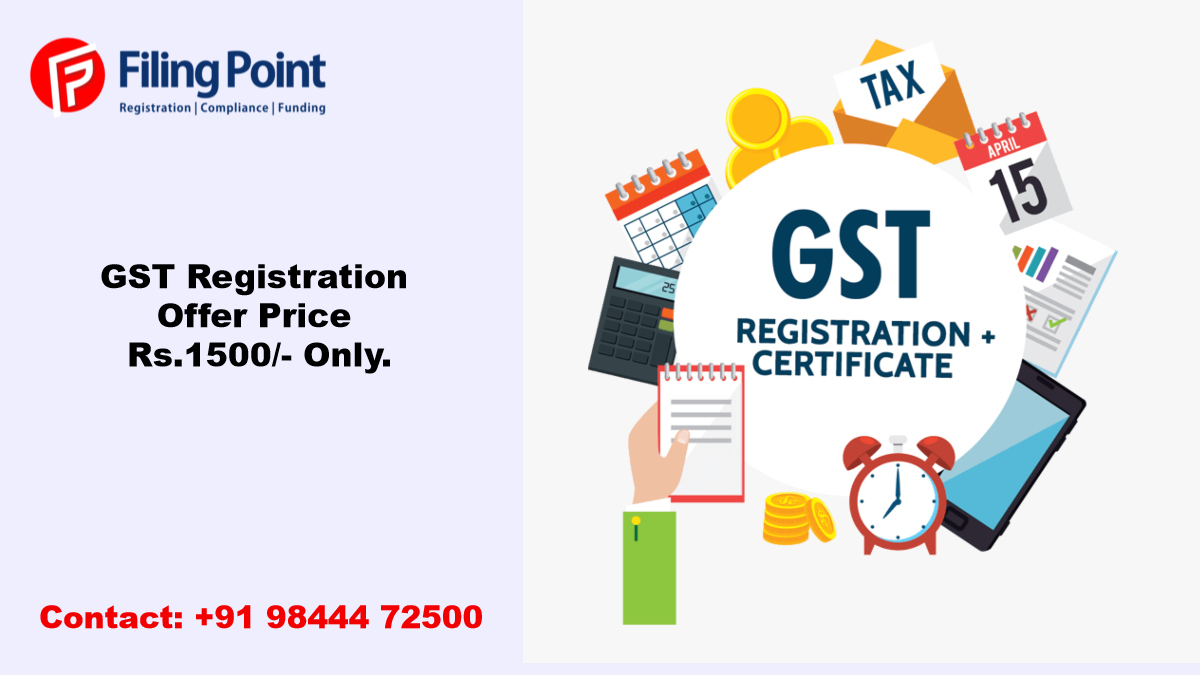Why Singapore GST Registration is Important for Your Startup
Why Singapore GST Registration is Important for Your Startup
Blog Article
The Ultimate Overview to Streamlining the GST Registration Refine and Demands for Small Company Owners

Recognizing GST Basics
To comprehend the principles of the Goods and Provider Tax Obligation (GST) system, local business owners need to first comprehend its underlying ramifications and principles. GST is a value-added tax obligation imposed on many products and solutions for domestic usage. It aims to improve the taxes process by replacing multiple indirect tax obligations imposed by the state and central federal governments. Under the GST regime, organizations are needed to gather and register tax in behalf of the federal government, guaranteeing transparency and conformity.
One of the key concepts of GST is input tax debt, which enables organizations to assert credit report for tax obligations paid on their purchases. Recognizing these standard principles is important for tiny service proprietors to navigate the complexities of the GST system and make certain compliance with the regulation.
Qualification Standards for Enrollment
Having developed a fundamental understanding of GST concepts, small company proprietors have to currently meet specific qualification standards to proceed with the enrollment procedure. In India, entities took part in the supply of goods or solutions with an annual accumulation turnover going beyond Rs. 40 lakhs (Rs. 10 lakhs for unique category states) are required to register for GST. Furthermore, particular businesses such as those associated with inter-state supply of items, casual taxed individuals, and those needed to pay tax under the reverse charge mechanism must register for GST regardless of their turn over. Businesses that were signed up under the previous tax obligation routine (BARREL, service tax obligation, and so on) are likewise mandated to register under GST. Farming businesses that only supply generate out of main manufacturing are exempt from GST registration. It is critical for entrepreneur to meticulously evaluate their eligibility based upon these standards to make sure compliance with the regulation and stay clear of any penalties for non-compliance.
Papers Needed for GST Enrollment

Simplified Registration Refine Actions
Adhering to the collection and verification of the requisite documents, the enrollment process for GST can be navigated with a series of streamlined steps made to help with effective compliance for little business owners. Upon successful verification, an Application Referral Number (ARN) is issued, indicating the conclusion of the GST enrollment procedure. By complying with these simplified actions, little organization proprietors can properly register for GST and guarantee compliance with tax regulations.
Tips for Ensuring Compliance
To preserve regulative adherence and operational honesty, persistent oversight and aggressive steps are pivotal in making sure compliance with GST demands for small organization owners. Small service proprietors should remain updated with GST policies, submitting deadlines, and any kind of modifications in tax obligation rates to stay clear of penalties and keep a good standing with tax obligation authorities. One necessary tip for conformity is to keep accurate and comprehensive records of all transactions, including receipts, expenses, and billings associated with GST. Routinely integrating financial records with GST returns can aid in determining and remedying any kind of inconsistencies immediately. Furthermore, performing periodic internal audits or seeking expert aid can ensure that the service is complying with all GST you can check here policies appropriately. It is likewise essential for small company proprietors to invest in GST-compliant accountancy software application that can enhance the tax obligation filing procedure and lessen mistakes. Going to GST understanding workshops or training programs can boost understanding and conformity with GST policies, eventually benefiting the business in the lengthy run.
Final Thought
Finally, small company proprietors should recognize the fundamentals of GST, meet the qualification criteria, gather required documents, and follow the streamlined enrollment process steps to ensure conformity. By streamlining the GST registration process and demands, small company proprietors can prevent fines and run their companies smoothly within the lawful structure - Singapore GST Registration. It is vital for tiny business owners to remain enlightened and certified with GST regulations to keep a successful company operation
Small company owners seeking GST enrollment must ensure they gather and send the required papers to finish the enrollment procedure successfully. The records required for GST enrollment commonly consist of evidence of service enrollment or incorporation, PAN (Permanent Account Number) card of the company entity, address and identification proof of the promoters/partners/directors, photos, address proof of the area of service, financial institution account statements or canceled cheques, and authorization kinds. Participating in GST understanding workshops or training programs can improve understanding and conformity with GST regulations, inevitably profiting the service in the long run.
By streamlining the GST registration procedure and requirements, tiny service proprietors can prevent charges and run their services efficiently within the lawful structure. It is critical for little business proprietors to remain informed and certified with GST regulations to preserve an effective organization operation.
Report this page